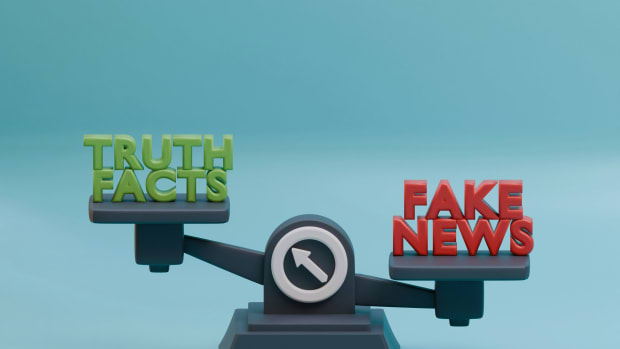
Disinformation turns out to be a political strategy of radical-right populists: “In their interest to create distrust”
The spread of disinformation should no longer be seen as a problem inherent to social media, according to UvA scholar in Computational Science Petter Törnberg, but as a political strategy deployed mainly by radical-right populists. This is demonstrated by a study recently conducted by Törnberg.
The study looked at 32 million tweets from politicians from 26 different countries over a period of six years. By examining how often politicians from different ideological groups post links on their social media channels to websites known to be filled with unreliable information or conspiracy theories, a pattern emerged showing that adherence to a radical-right, populist ideology is the strongest predictor of spreading disinformation. “Only with that specific combination do the results become significant,” explains Törnberg. “Mainstream right-wing parties, for example, show no higher probability of spreading disinformation than mainstream left-wing parties.” No significant effect was found for radical-left populists either.

Distrust
According to Törnberg, this is probably due to the fact that radical-right populists tend to be anti-establishment and anti-democratic. “Therefore, it is in their interest to create a sense of distrust towards the establishment, democratic institutions and traditional media. This creates a misinformed and distrustful section of the electorate. Those voters have become intertwined with the radical-right populist movement.”
In this way, a dichotomy has emerged between the distrust-mongering radical-right populists on the one hand, and the traditional political parties that instead stand up for democratic institutions on the other, Törnberg explains. “By spreading conspiracy theories, for example, radical-right populists undermine trust in established media organisations. This diminishes the sense of a shared reality, which is in the interests of those kinds of parties.”
“Because that lack of trust in the media and democracy,” Törnberg continues, “has given radical-right populists a huge boost. The platform they have gained as a result, those politicians now use to then further stimulate and fuel this distrust single-handedly. In doing so, they create a negative cycle that reinforces itself. A kind of feedback loop is thus created.”
Donald Trump
Donald Trump’s recent election victory, according to Törnberg, shows how the rise of radical-right populism is linked to the rise of disinformation. According to him, the parallel developments should be seen as two sides of the same coin. “In a sense, the spread of disinformation is an expression of this political movement. Trump is simultaneously the embodiment of radical-right populism, and the embodiment of the growing role that disinformation has come to play. Thus, the research has now shown that disinformation is not a universal consequence of the use of social media, but a political strategy very clearly intertwined with the radical-right populist movement.”
While the spread of disinformation may not be an inherent feature of social media, the owners of the major platforms like X and Meta do play a major role in this story, Törnberg continues. “Listen to the speech Zuckerberg gave about getting rid of factcheckers at Meta. He makes it seem like this was a politically neutral choice, but of course it is not. Disinformation is a powerful, political weapon of the radical right. As they come to power in the United States, Meta is bending their knees and adjusting their policies. This enables Trump to arm himself more easily with this powerful strategy.”
Yet this problem is not limited to social media, Törnberg stresses. “Research shows that traditional media also play an important role in spreading disinformation. In the United States, for example, people are mostly exposed to Trump’s lies via Fox News.” Still, there is no doubt that social media has greatly shaped the current political climate, he stresses. “The way radical-right populists manifest themselves is intertwined with those new, digital media. They are shaped by that context, and disinformation is a part of that because there are no gatekeepers . So that gives that group of politicians free rein to capitalise on the sense of distrust within their own ranks towards democratic institutions.”


